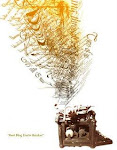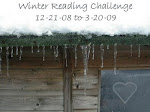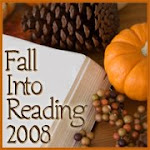 Can mysterious matchmaking booksellers bring two lonely hearts together in time for Christmas?
Can mysterious matchmaking booksellers bring two lonely hearts together in time for Christmas?In a sleepy, snow-covered city, Cora Crowder is busy preparing for the holiday season. Searching for a perfect gift, a fortuitous trip to Warner, Werner, and Wizbotterdad’s (a most unusual bookshop) leads to an unexpected encounter with co-worker Simon Derrick. And the surprise discovery of a ticket for a truly one-of-a-kind Christmas Ball.
Every year, the matchmaking booksellers of the Sage Street bookshop host an enchanting, old-fashioned Christmas Ball for the romantic matches they’ve decided to bring together.
This year, will Simon and Cora discover a perfect chemistry in their opposite personalities and shared faith? Or will the matchmakers’ best laid plans end up ruining everything this holiday?
My Review:
I thoroughly enjoyed this grown-up fantasy Christian fiction novella that evokes memories of Cinderella. I enjoyed it from the beginning to the delightful. yet surprising end.
The protagonists are well-written characters, Cora and Simon, who experience unexpected romance at Christmastime. Sandy, a secondary character is written so well that I learned a good bit about how to interact with a person of special needs.
(sigh) I would prefer the writing style of sentence fragments be eliminated, though. However, even that did not detract me too much from my joy while consuming this sugary treat.
What a super Christmas gift this would be!
Thank you to FirstWildCard and Ashley Boyer and Staci Carmichael of Waterbrook Multnomah for my copy.
And now, the first chapter:

Christmas. Cora had been trying to catch it for four years. She scurried down the sidewalk, thankful that streetlights and brightly lit storefronts counteracted the gloom of early nightfall. Somewhere, sometime, she’d get a hold of how to celebrate Christmas. Maybe even tonight.
With snowflakes sticking to her black coat, Christmas lights blinking around shop windows, and incessant bells jingling, Cora should have felt some holiday cheer.
And she did.
Really.
Just not much.
At least she was on a Christmas errand this very minute. One present for a member of the family. Shouldn’t that count for a bit of credit in the Christmas-spirit department?
Cora planned out her Christmas gift giving in a reasonable manner. The execution of her purchasing schedule gave her a great deal of satisfaction. Tonight’s quest was a book for Uncle Eric—something about knights and castles, sword fights, shining armor, and all that.
One or two gifts purchased each week from Labor Day until December 15, and her obligations were discharged efficiently, economically, and without the excruciating last-minute frenzy that descended upon other people…like her three sisters, her mother, her grandmother, her aunts.
Cora refused to behave like her female relatives and had decided not to emulate the male side of the family either. The men didn’t buy gifts. They sometimes exchanged bottles from the liquor store, but more often they drank the spirits themselves.
Her adult ambition had been to develop her own traditions for the season, ones that sprouted from the Christianity she’d discovered in college. The right way to celebrate the birth of Christ. She avoided the chaos that could choke Christmas. Oh dear. Judgmental again. At least now she recognized when she slipped.
She glanced around Sage Street. Not too many shoppers. The quaint old shops were decked out for the holidays, but not with LED bulbs and inflated cartoon figures.
Since discovering Christianity, she’d been confused about the trappings of Christmas—the gift giving, the nativity scenes, the carols, even the Christmas tree. Every year she tried to acquire some historical background on the festivities. She was learning. She had hope. But she hadn’t wrapped her head around all the traditions yet.
The worst part was shopping.
Frenzy undid her. Order sustained her. And that was a good reason to steer clear of any commercialized holiday rush. She’d rather screw red light bulbs into plastic reindeer faces than push through a crowd of shoppers.
Cora examined the paper in her hand and compared it to the address above the nearest shop. Number 483 on the paper and 527 on the building. Close.
When she’d found the bookstore online, she had been amazed that a row of old-fashioned retailers still existed a few blocks from the high-rise office building where she worked. Truthfully, it was more like the bookstore found her. Every time she opened her browser, and on every site she visited, the ad for the old-fashioned new- and used-book store showed up in a banner or sidebar. She’d asked around, but none of her co-workers patronized the Sage Street Shopping District.
“Sounds like a derelict area to me,” said Meg, the receptionist. “Sage Street is near the old railroad station, isn’t it? The one they decided was historic so they wouldn’t tear it down, even though it’s empty and an eyesore?”
An odd desire to explore something other than the mall near her apartment seized Cora. “I’m going to check it out.”
Jake, the security guard, frowned at her. “Take a cab. You don’t want to be out too late over there.”
Cora walked. The brisk air strengthened her lungs, right? The exercise pumped her blood, right? A cab would cost three, maybe four dollars, right?
An old man, sitting on the stoop of a door marked 503, nodded at her. She smiled, and he winked as he gave her a toothless grin. Startled, she quickened her pace and gladly joined the four other pedestrians waiting at the corner for the light to change.
Number 497 emblazoned the window of an ancient shoe store on the opposite corner. She marched on. In this block she’d find the book and check another item off her Christmas list.
Finally! “Warner, Werner, and Wizbotterdad, Books,” Cora read the sign aloud and then grasped the shiny knob. It didn’t turn. She frowned. Stuck? Locked? The lights were on. She pressed her face against the glass. A man sat at the counter. Reading. How appropriate.
Cora wrenched the knob. A gust of wind pushed with her against the door, and she blew into the room. She stumbled and straightened, and before she could grab the door and close it properly, it swung closed, without the loud bang she expected.
“I don’t like loud noises,” the man said without looking up from his book.
“Neither do I,” said Cora.
He nodded over his book. With one gnarled finger, he pushed his glasses back up his nose.
Must be an interesting book. Cora took a quick look around. The place could use stronger lights. She glanced back at the clerk. His bright lamp cast him and his book in a golden glow.
Should she peruse the stacks or ask?
She decided to browse. She started to enter the aisle between two towering bookcases.
“Not there,” said the old man.
“I beg your pardon?” said Cora.
“How-to books. How to fix a leaky faucet. How to build a bridge. How to mulch tomatoes. How to sing opera. How-to books. You don’t need to know any of that, do you?”
“No.”
“Wrong aisle, then.” He placed the heavy volume on the counter and leaned over it, apparently absorbed once more.
Cora took a step toward him. “I think I saw a movie like this once.”
His head jerked up, his scowl heavier. He glared over the top of his glasses at the books on the shelves as if they had suddenly moved or spoken or turned bright orange.
“A movie? Here? I suppose you mean the backdrop of a bookstore. Not so unusual.” He arched an eyebrow. “You’ve Got Mail and 84 Charing Cross Road.”
“I meant the dialogue. You spoke as if you knew what I needed.”
He hunched his shoulders. The dark suspenders stretched across the faded blue of his shirt. “Reading customers. Been in the business a long time.”
“I’m looking for a book for my uncle. He likes castles, knights, tales of adventure. That sort of thing.”
He sighed, closed his book, and tapped its cover. “This is it.” He stood as Cora came to the desk. “Do you want me to wrap it and send it? We have the service. My grandson’s idea.”
Cora schooled her face and her voice. One of the things she excelled in was not showing her exasperation. She’d been trained by a dysfunctional family, and that had its benefits. She knew how to take guff and not give it back. Maintaining a calm attitude was a good job skill.
She tried a friendly smile and addressed the salesclerk.
“I want to look at it first and find out how much it costs.”
“It’s the book you want, and the price is eleven dollars and thirteen cents.”
Cora rubbed her hand over the cover. It looked and felt like leather, old leather, but in good repair. The book must be ancient.
“Are you sure?” she asked.
“Which?” the old man barked.
“Which what?”
“Which part of the statement am I sure about? It doesn’t matter because I’m sure about both.”
Cora felt her armor of detachment suffer a dent. The man was impossible. She could probably order a book online and get it wrapped and delivered right to her uncle with less aggravation. But dollar signs blinked in neon red in her mind as she thought how much that would cost. No need to be hasty.
Curtain rings rattled on a rod, and Cora looked up to see a younger version of the curmudgeon step into the area behind the counter.
The younger man smiled. He had the same small, wiry build as the older version, but his smile was warm and genuine. He looked to be about fifty, but his hair was still black, as black as the old man’s hair was white. He stretched out his hand, and Cora shook it.
“I’m Bill Wizbotterdad. This is my granddad, William Wizbotterdad.”
“Let me guess. Your father is named Will?”
Bill grinned, obviously pleased she’d caught on quickly. “Willie Wizbotterdad. He’s off in Europe collecting rare books.”
“He’s not!” said the elder shop owner.
“He is.” Bill cast his granddad a worried look.
“That’s just the reason he gave for not being here.” William shook his head and leaned across the counter. “He doesn’t like Christmas. We have a special job to do at Christmas, and he doesn’t like people and dancing and matrimony.”
Bill put his arm around his grandfather and pulled him back. He let go of his granddad and spun the book on the scarred wooden counter so that Cora could read the contents. “Take a look.” He opened the cover and flipped through the pages. “Colored illustrations.”
A rattling of the door knob was followed by the sound of a shoulder thudding against the wood. Cora turned to see the door fly open with a tall man attached to it. The stranger brushed snow from his sleeves, then looked up at the two shop owners. Cora caught them giving each other a smug smile, a wink, and a nod of the head.
Odd. Lots of oddness in this shop.
She liked the book, and she wanted to leave before more snow accumulated on the streets. Yet something peculiar about this shop and the two men made her curious. Part of her longed to linger. However, smart girls trusted their instincts and didn’t hang around places that oozed mystery. She didn’t feel threatened, just intrigued. But getting to know the peculiar booksellers better was the last thing she wanted, right? She needed to get home and be done with this Christmas shopping business. “I’ll take the book.”
The newcomer stomped his feet on the mat by the door, then took off his hat.
Cora did a double take. “Mr. Derrick!”
He cocked his head and scrunched his face. “Do I know you?” The man was handsome, even wearing that comical lost expression. “Excuse me. Have we met?”
“We work in the same office.”
He studied her a moment, and a look of recognition lifted the frown. “Third desk on the right.” He hesitated, then snapped his fingers. “Cora Crowden.”
“Crowder.”
He jammed his hand in his pocket, moving his jacket aside. His tie hung loosely around his neck. She’d never seen him looking relaxed. The office clerks called him Serious Simon Derrick.
“I drew your name,” she said.
He looked puzzled.
“For the gift exchange. Tomorrow night. Office party.”
“Oh. Of course.” He nodded. “I drew Mrs. Hudson. She’s going to retire, and I heard her say she wanted to redecorate on a shoestring.”
“That’s Mrs. Wilson. Mrs. Hudson is taking leave to be with her daughter, who is giving birth to triplets.”
He frowned and began looking at the books.
“You won’t be there, will you?” Cora asked.
“At the party? No, I never come.”
“I know. I mean, I’ve worked at Sorenby’s for five years, and you’ve never been there.”
The puzzled expression returned to Serious Simon’s face. He glanced to the side. “I’m looking for the how-to section.”
Cora grinned. “On your left. Second aisle.”
He turned to stare at her, and she pointed to the shelves Mr. Wizbotterdad had not let her examine. Mr. Derrick took a step in that direction.
Cora looked back at the shop owners and caught them leaning back in identical postures, grins on their faces, and arms crossed over their chests.
Bill jerked away from the wall, grabbed her book, rummaged below the counter, and brought out a bag. He slid the book inside, then looked at her. “You didn’t want the book wrapped and delivered?”
“No, I’ll just pay for it now.”
“Are you sure you wouldn’t like to look around some more?” asked Bill.
“Right,” said William. “No hurry. Look around. Browse. You might find something you like.”
Bill elbowed William.
Simon Derrick had disappeared between the stacks.
William nodded toward the how-to books. “Get a book. We have a copy of How to Choose Gifts for Ungrateful Relatives. Third from the bottom shelf, second case from the wall.”
The statement earned him a “shh” from his grandson.
Cora shifted her attention to the man from her office and walked a few paces to peek around the shelves. “Mr. Derrick, I’m getting ready to leave. If you’re not coming to the party, may I just leave the gift on your desk tomorrow?”
He glanced at her before concentrating again on the many books. “That’s fine. Nice to see you, Miss Crowden.”
“Crowder,” she corrected, but he didn’t answer.
She went to the counter and paid. Mr. Derrick grunted when she said good-bye at the door.
“Come back again,” said Bill.
“Yes,” said William. “We have all your heart’s desires.”
Bill elbowed him, and Cora escaped into the blustering weather.
She hiked back to the office building. Snow sprayed her with tiny crystals, and the sharp wind nipped her nose. Inside the parking garage, warm air helped her thaw a bit as she walked to the spot she leased by the month. It would be a long ride home on slippery roads. But once she arrived, there would be no one there to interrupt her plans. She got in the car, turned the key, pushed the gearshift into reverse, looked over her shoulder, and backed out of her space.
She would get the gift ready to mail off and address a few cards in the quiet of her living room. There would be no yelling. That’s what she liked about living states away from her family. No one would ambush her with complaints and arguments when she walked through the door.
Except Skippy. Skippy waited. One fat, getting fatter, cat to talk to. She did complain at times about her mistress being gone too long, about her dinner being late, about things Cora could not fathom. But Cora never felt condemned by Skippy, just prodded a little.
_
Once inside her second-floor apartment, she pulled off her gloves, blew her nose, and went looking for Skippy.
The cat was not behind the curtain, sitting on the window seat, staring at falling snow. Not in her closet, curled up in a boot she’d knocked over. Not in the linen closet, sleeping on clean towels. She wasn’t in any of her favorite spots. Cora looked around and saw the paper bag that, this morning, had been filled with wadded scraps of Christmas paper. Balls of pretty paper and bits of ribbon littered the floor. There. Cora bent over and spied her calico cat in the bag.
“Did you have fun, Skippy?”
The cat rolled on her back and batted the top of the paper bag. Skippy then jumped from her cave and padded after Cora, as her owner headed for the bedroom.
Thirty minutes later, Cora sat at the dining room table in her cozy pink robe that enveloped her from neck to ankles. She stirred a bowl of soup and eyed the fifteen packages she’d wrapped earlier in the week. Two more sat waiting for their ribbons.
These would cost a lot less to send if some of these people were on speaking terms. She could box them together and ship them off in large boxes.
She spooned chicken and rice into her mouth and swallowed.
The soup was a tad too hot. She kept stirring.
She could send one package with seven gifts inside to Grandma Peterson, who could dispense them to her side of the family. She could send three to Aunt Carol.
She took another sip. Cooler.
Aunt Carol could keep her gift and give two to her kids. She could send five to her mom…
Cora grimaced. She had three much older sisters and one younger. “If Mom were on speaking terms with my sisters, that would help.”
She eyed Skippy, who had lifted a rear leg to clean between her back toes. “You don’t care, do you? Well, I’m trying to. And I think I’m doing a pretty good job with this Christmas thing.”
She reached over and flipped the switch on her radio. A Christmas carol poured out and jarred her nerves. She really should think about Christmas and not who received the presents. Better to think “my uncle” than “Joe, that bar bum and pool shark.”
She finished her dinner, watching her cat wash her front paws.
“You and I need to play. You’re”—she paused as Skippy turned
a meaningful glare at her—“getting a bit rotund, dear kitty.”
Skippy sneezed and commenced licking her chest.
After dinner, Cora curled up on the couch with her Warner, Werner, and Wizbotterdad bag. Skippy came to investigate the rattling paper.
Uncle Eric. Uncle Eric used to recite “You Are Old, Father William.” He said it was about a knight. But Cora wasn’t so sure. She dredged up memories from college English. The poem was by Lewis Carroll, who was really named Dodson, Dogson, Dodgson, or something.
“He wrote Alice’s Adventures in Wonderland,” she said. “There’s a cat in the story, but not as fine a cat as you. He smiles too much.”
Skippy gave her a squint-eyed look.
Cora eased the leather-bound book out of the bag. “The William I met at the bookstore qualifies for at least ancient.”
She put the book in her lap and ran her fingers over the embossed title: How the Knights Found Their Ladies.
She might have been hasty. She didn’t know if Uncle Eric would like this. She hefted the book, guessing its weight to be around four pounds. She should have found a lighter gift. This would cost a fortune to mail.
Skippy sniffed at the binding, feline curiosity piqued. Cora stroked her fur and pushed her back. She opened the book to have a peek inside. A piece of thick paper fell out. Skippy pounced on it as it twirled to the floor.
“What is it, kitty? A bookmark?” She slipped it out from between Skippy’s paws, then turned the rectangle over in her hands. Not a bookmark. A ticket.
Admit one to the Wizards’ Christmas Ball
Costumes required
Dinner and Dancing
and your Destiny
Never heard of it. She tucked the ticket in between the pages and continued to flip through the book, stopping to read an occasional paragraph.
This book wasn’t for Uncle Eric at all. It was not a history, it was a story. Kind of romantic too. Definitely not Uncle Eric’s preferred reading.
Skippy curled against her thigh and purred.
“You know what, cat? I’m going to keep it.”
Skippy made her approval known by stretching her neck up and rubbing her chin on the edge of the leather cover. Cora put the book on the sofa and picked up Skippy for a cuddle. The cat squirmed out of her arms, batted at the ticket sticking out of the pages, and scampered off.
“I love you too,” called Cora.
She pulled the ticket out and read it again: Wizards’ Christmas Ball. She turned out the light and headed for bed. But as she got ready, her eye caught the computer on her desk. Maybe she could find a bit more information.
With snowflakes sticking to her black coat, Christmas lights blinking around shop windows, and incessant bells jingling, Cora should have felt some holiday cheer.
And she did.
Really.
Just not much.
At least she was on a Christmas errand this very minute. One present for a member of the family. Shouldn’t that count for a bit of credit in the Christmas-spirit department?
Cora planned out her Christmas gift giving in a reasonable manner. The execution of her purchasing schedule gave her a great deal of satisfaction. Tonight’s quest was a book for Uncle Eric—something about knights and castles, sword fights, shining armor, and all that.
One or two gifts purchased each week from Labor Day until December 15, and her obligations were discharged efficiently, economically, and without the excruciating last-minute frenzy that descended upon other people…like her three sisters, her mother, her grandmother, her aunts.
Cora refused to behave like her female relatives and had decided not to emulate the male side of the family either. The men didn’t buy gifts. They sometimes exchanged bottles from the liquor store, but more often they drank the spirits themselves.
Her adult ambition had been to develop her own traditions for the season, ones that sprouted from the Christianity she’d discovered in college. The right way to celebrate the birth of Christ. She avoided the chaos that could choke Christmas. Oh dear. Judgmental again. At least now she recognized when she slipped.
She glanced around Sage Street. Not too many shoppers. The quaint old shops were decked out for the holidays, but not with LED bulbs and inflated cartoon figures.
Since discovering Christianity, she’d been confused about the trappings of Christmas—the gift giving, the nativity scenes, the carols, even the Christmas tree. Every year she tried to acquire some historical background on the festivities. She was learning. She had hope. But she hadn’t wrapped her head around all the traditions yet.
The worst part was shopping.
Frenzy undid her. Order sustained her. And that was a good reason to steer clear of any commercialized holiday rush. She’d rather screw red light bulbs into plastic reindeer faces than push through a crowd of shoppers.
Cora examined the paper in her hand and compared it to the address above the nearest shop. Number 483 on the paper and 527 on the building. Close.
When she’d found the bookstore online, she had been amazed that a row of old-fashioned retailers still existed a few blocks from the high-rise office building where she worked. Truthfully, it was more like the bookstore found her. Every time she opened her browser, and on every site she visited, the ad for the old-fashioned new- and used-book store showed up in a banner or sidebar. She’d asked around, but none of her co-workers patronized the Sage Street Shopping District.
“Sounds like a derelict area to me,” said Meg, the receptionist. “Sage Street is near the old railroad station, isn’t it? The one they decided was historic so they wouldn’t tear it down, even though it’s empty and an eyesore?”
An odd desire to explore something other than the mall near her apartment seized Cora. “I’m going to check it out.”
Jake, the security guard, frowned at her. “Take a cab. You don’t want to be out too late over there.”
Cora walked. The brisk air strengthened her lungs, right? The exercise pumped her blood, right? A cab would cost three, maybe four dollars, right?
An old man, sitting on the stoop of a door marked 503, nodded at her. She smiled, and he winked as he gave her a toothless grin. Startled, she quickened her pace and gladly joined the four other pedestrians waiting at the corner for the light to change.
Number 497 emblazoned the window of an ancient shoe store on the opposite corner. She marched on. In this block she’d find the book and check another item off her Christmas list.
Finally! “Warner, Werner, and Wizbotterdad, Books,” Cora read the sign aloud and then grasped the shiny knob. It didn’t turn. She frowned. Stuck? Locked? The lights were on. She pressed her face against the glass. A man sat at the counter. Reading. How appropriate.
Cora wrenched the knob. A gust of wind pushed with her against the door, and she blew into the room. She stumbled and straightened, and before she could grab the door and close it properly, it swung closed, without the loud bang she expected.
“I don’t like loud noises,” the man said without looking up from his book.
“Neither do I,” said Cora.
He nodded over his book. With one gnarled finger, he pushed his glasses back up his nose.
Must be an interesting book. Cora took a quick look around. The place could use stronger lights. She glanced back at the clerk. His bright lamp cast him and his book in a golden glow.
Should she peruse the stacks or ask?
She decided to browse. She started to enter the aisle between two towering bookcases.
“Not there,” said the old man.
“I beg your pardon?” said Cora.
“How-to books. How to fix a leaky faucet. How to build a bridge. How to mulch tomatoes. How to sing opera. How-to books. You don’t need to know any of that, do you?”
“No.”
“Wrong aisle, then.” He placed the heavy volume on the counter and leaned over it, apparently absorbed once more.
Cora took a step toward him. “I think I saw a movie like this once.”
His head jerked up, his scowl heavier. He glared over the top of his glasses at the books on the shelves as if they had suddenly moved or spoken or turned bright orange.
“A movie? Here? I suppose you mean the backdrop of a bookstore. Not so unusual.” He arched an eyebrow. “You’ve Got Mail and 84 Charing Cross Road.”
“I meant the dialogue. You spoke as if you knew what I needed.”
He hunched his shoulders. The dark suspenders stretched across the faded blue of his shirt. “Reading customers. Been in the business a long time.”
“I’m looking for a book for my uncle. He likes castles, knights, tales of adventure. That sort of thing.”
He sighed, closed his book, and tapped its cover. “This is it.” He stood as Cora came to the desk. “Do you want me to wrap it and send it? We have the service. My grandson’s idea.”
Cora schooled her face and her voice. One of the things she excelled in was not showing her exasperation. She’d been trained by a dysfunctional family, and that had its benefits. She knew how to take guff and not give it back. Maintaining a calm attitude was a good job skill.
She tried a friendly smile and addressed the salesclerk.
“I want to look at it first and find out how much it costs.”
“It’s the book you want, and the price is eleven dollars and thirteen cents.”
Cora rubbed her hand over the cover. It looked and felt like leather, old leather, but in good repair. The book must be ancient.
“Are you sure?” she asked.
“Which?” the old man barked.
“Which what?”
“Which part of the statement am I sure about? It doesn’t matter because I’m sure about both.”
Cora felt her armor of detachment suffer a dent. The man was impossible. She could probably order a book online and get it wrapped and delivered right to her uncle with less aggravation. But dollar signs blinked in neon red in her mind as she thought how much that would cost. No need to be hasty.
Curtain rings rattled on a rod, and Cora looked up to see a younger version of the curmudgeon step into the area behind the counter.
The younger man smiled. He had the same small, wiry build as the older version, but his smile was warm and genuine. He looked to be about fifty, but his hair was still black, as black as the old man’s hair was white. He stretched out his hand, and Cora shook it.
“I’m Bill Wizbotterdad. This is my granddad, William Wizbotterdad.”
“Let me guess. Your father is named Will?”
Bill grinned, obviously pleased she’d caught on quickly. “Willie Wizbotterdad. He’s off in Europe collecting rare books.”
“He’s not!” said the elder shop owner.
“He is.” Bill cast his granddad a worried look.
“That’s just the reason he gave for not being here.” William shook his head and leaned across the counter. “He doesn’t like Christmas. We have a special job to do at Christmas, and he doesn’t like people and dancing and matrimony.”
Bill put his arm around his grandfather and pulled him back. He let go of his granddad and spun the book on the scarred wooden counter so that Cora could read the contents. “Take a look.” He opened the cover and flipped through the pages. “Colored illustrations.”
A rattling of the door knob was followed by the sound of a shoulder thudding against the wood. Cora turned to see the door fly open with a tall man attached to it. The stranger brushed snow from his sleeves, then looked up at the two shop owners. Cora caught them giving each other a smug smile, a wink, and a nod of the head.
Odd. Lots of oddness in this shop.
She liked the book, and she wanted to leave before more snow accumulated on the streets. Yet something peculiar about this shop and the two men made her curious. Part of her longed to linger. However, smart girls trusted their instincts and didn’t hang around places that oozed mystery. She didn’t feel threatened, just intrigued. But getting to know the peculiar booksellers better was the last thing she wanted, right? She needed to get home and be done with this Christmas shopping business. “I’ll take the book.”
The newcomer stomped his feet on the mat by the door, then took off his hat.
Cora did a double take. “Mr. Derrick!”
He cocked his head and scrunched his face. “Do I know you?” The man was handsome, even wearing that comical lost expression. “Excuse me. Have we met?”
“We work in the same office.”
He studied her a moment, and a look of recognition lifted the frown. “Third desk on the right.” He hesitated, then snapped his fingers. “Cora Crowden.”
“Crowder.”
He jammed his hand in his pocket, moving his jacket aside. His tie hung loosely around his neck. She’d never seen him looking relaxed. The office clerks called him Serious Simon Derrick.
“I drew your name,” she said.
He looked puzzled.
“For the gift exchange. Tomorrow night. Office party.”
“Oh. Of course.” He nodded. “I drew Mrs. Hudson. She’s going to retire, and I heard her say she wanted to redecorate on a shoestring.”
“That’s Mrs. Wilson. Mrs. Hudson is taking leave to be with her daughter, who is giving birth to triplets.”
He frowned and began looking at the books.
“You won’t be there, will you?” Cora asked.
“At the party? No, I never come.”
“I know. I mean, I’ve worked at Sorenby’s for five years, and you’ve never been there.”
The puzzled expression returned to Serious Simon’s face. He glanced to the side. “I’m looking for the how-to section.”
Cora grinned. “On your left. Second aisle.”
He turned to stare at her, and she pointed to the shelves Mr. Wizbotterdad had not let her examine. Mr. Derrick took a step in that direction.
Cora looked back at the shop owners and caught them leaning back in identical postures, grins on their faces, and arms crossed over their chests.
Bill jerked away from the wall, grabbed her book, rummaged below the counter, and brought out a bag. He slid the book inside, then looked at her. “You didn’t want the book wrapped and delivered?”
“No, I’ll just pay for it now.”
“Are you sure you wouldn’t like to look around some more?” asked Bill.
“Right,” said William. “No hurry. Look around. Browse. You might find something you like.”
Bill elbowed William.
Simon Derrick had disappeared between the stacks.
William nodded toward the how-to books. “Get a book. We have a copy of How to Choose Gifts for Ungrateful Relatives. Third from the bottom shelf, second case from the wall.”
The statement earned him a “shh” from his grandson.
Cora shifted her attention to the man from her office and walked a few paces to peek around the shelves. “Mr. Derrick, I’m getting ready to leave. If you’re not coming to the party, may I just leave the gift on your desk tomorrow?”
He glanced at her before concentrating again on the many books. “That’s fine. Nice to see you, Miss Crowden.”
“Crowder,” she corrected, but he didn’t answer.
She went to the counter and paid. Mr. Derrick grunted when she said good-bye at the door.
“Come back again,” said Bill.
“Yes,” said William. “We have all your heart’s desires.”
Bill elbowed him, and Cora escaped into the blustering weather.
She hiked back to the office building. Snow sprayed her with tiny crystals, and the sharp wind nipped her nose. Inside the parking garage, warm air helped her thaw a bit as she walked to the spot she leased by the month. It would be a long ride home on slippery roads. But once she arrived, there would be no one there to interrupt her plans. She got in the car, turned the key, pushed the gearshift into reverse, looked over her shoulder, and backed out of her space.
She would get the gift ready to mail off and address a few cards in the quiet of her living room. There would be no yelling. That’s what she liked about living states away from her family. No one would ambush her with complaints and arguments when she walked through the door.
Except Skippy. Skippy waited. One fat, getting fatter, cat to talk to. She did complain at times about her mistress being gone too long, about her dinner being late, about things Cora could not fathom. But Cora never felt condemned by Skippy, just prodded a little.
_
Once inside her second-floor apartment, she pulled off her gloves, blew her nose, and went looking for Skippy.
The cat was not behind the curtain, sitting on the window seat, staring at falling snow. Not in her closet, curled up in a boot she’d knocked over. Not in the linen closet, sleeping on clean towels. She wasn’t in any of her favorite spots. Cora looked around and saw the paper bag that, this morning, had been filled with wadded scraps of Christmas paper. Balls of pretty paper and bits of ribbon littered the floor. There. Cora bent over and spied her calico cat in the bag.
“Did you have fun, Skippy?”
The cat rolled on her back and batted the top of the paper bag. Skippy then jumped from her cave and padded after Cora, as her owner headed for the bedroom.
Thirty minutes later, Cora sat at the dining room table in her cozy pink robe that enveloped her from neck to ankles. She stirred a bowl of soup and eyed the fifteen packages she’d wrapped earlier in the week. Two more sat waiting for their ribbons.
These would cost a lot less to send if some of these people were on speaking terms. She could box them together and ship them off in large boxes.
She spooned chicken and rice into her mouth and swallowed.
The soup was a tad too hot. She kept stirring.
She could send one package with seven gifts inside to Grandma Peterson, who could dispense them to her side of the family. She could send three to Aunt Carol.
She took another sip. Cooler.
Aunt Carol could keep her gift and give two to her kids. She could send five to her mom…
Cora grimaced. She had three much older sisters and one younger. “If Mom were on speaking terms with my sisters, that would help.”
She eyed Skippy, who had lifted a rear leg to clean between her back toes. “You don’t care, do you? Well, I’m trying to. And I think I’m doing a pretty good job with this Christmas thing.”
She reached over and flipped the switch on her radio. A Christmas carol poured out and jarred her nerves. She really should think about Christmas and not who received the presents. Better to think “my uncle” than “Joe, that bar bum and pool shark.”
She finished her dinner, watching her cat wash her front paws.
“You and I need to play. You’re”—she paused as Skippy turned
a meaningful glare at her—“getting a bit rotund, dear kitty.”
Skippy sneezed and commenced licking her chest.
After dinner, Cora curled up on the couch with her Warner, Werner, and Wizbotterdad bag. Skippy came to investigate the rattling paper.
Uncle Eric. Uncle Eric used to recite “You Are Old, Father William.” He said it was about a knight. But Cora wasn’t so sure. She dredged up memories from college English. The poem was by Lewis Carroll, who was really named Dodson, Dogson, Dodgson, or something.
“He wrote Alice’s Adventures in Wonderland,” she said. “There’s a cat in the story, but not as fine a cat as you. He smiles too much.”
Skippy gave her a squint-eyed look.
Cora eased the leather-bound book out of the bag. “The William I met at the bookstore qualifies for at least ancient.”
She put the book in her lap and ran her fingers over the embossed title: How the Knights Found Their Ladies.
She might have been hasty. She didn’t know if Uncle Eric would like this. She hefted the book, guessing its weight to be around four pounds. She should have found a lighter gift. This would cost a fortune to mail.
Skippy sniffed at the binding, feline curiosity piqued. Cora stroked her fur and pushed her back. She opened the book to have a peek inside. A piece of thick paper fell out. Skippy pounced on it as it twirled to the floor.
“What is it, kitty? A bookmark?” She slipped it out from between Skippy’s paws, then turned the rectangle over in her hands. Not a bookmark. A ticket.
Admit one to the Wizards’ Christmas Ball
Costumes required
Dinner and Dancing
and your Destiny
Never heard of it. She tucked the ticket in between the pages and continued to flip through the book, stopping to read an occasional paragraph.
This book wasn’t for Uncle Eric at all. It was not a history, it was a story. Kind of romantic too. Definitely not Uncle Eric’s preferred reading.
Skippy curled against her thigh and purred.
“You know what, cat? I’m going to keep it.”
Skippy made her approval known by stretching her neck up and rubbing her chin on the edge of the leather cover. Cora put the book on the sofa and picked up Skippy for a cuddle. The cat squirmed out of her arms, batted at the ticket sticking out of the pages, and scampered off.
“I love you too,” called Cora.
She pulled the ticket out and read it again: Wizards’ Christmas Ball. She turned out the light and headed for bed. But as she got ready, her eye caught the computer on her desk. Maybe she could find a bit more information.

































